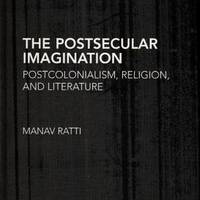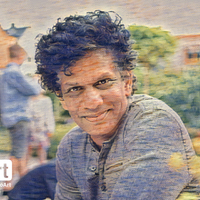
Manav Ratti
Associate Faculty Member, Faculty of English, Oxford University; Senior College, University of Toronto
Research Interests: Postcolonial Theory, Postsecularism, Postcolonial Literature, South Asian Studies
Research Interests: Postcolonial Theory, Postsecularism, Postcolonial Literature, South Asian Studies
less
Related Authors
Sk Sagir Ali
Midnapore College
Mary Sobhani
Uafs
Norbert Bugeja
University of Malta
Sian Melvill Hawthorne
SOAS University of London
Callum Sutherland
University of Exeter
Pavan Malreddy
Goethe-Universität Frankfurt am Main
Andrew Williams
Cardiff University










Uploads
Papers by Manav Ratti
and mythologies in his novels? Mythologies from numerous religious, cultural, and national traditions, including Islamic, Hindu, Norse, Greek, Christian, and Persian, among others, have featured in Rushdie’s fiction from the very beginning. Mythologies allow Rushdie to represent in his fictional narratives the politics, intractability, and crises of postcolonial challenges, pressures, and fissures. These diverse challenges include the politics of immigration and the array of discriminations it can spawn, including xenophobia, classism, and racism; the conflicts between secular and religious world-views, including blasphemy, superstition, and censorship; and the very nature of postcolonial nationalism and nation-building, including reflections on diaspora, national belonging, and homelands.
and mythologies in his novels? Mythologies from numerous religious, cultural, and national traditions, including Islamic, Hindu, Norse, Greek, Christian, and Persian, among others, have featured in Rushdie’s fiction from the very beginning. Mythologies allow Rushdie to represent in his fictional narratives the politics, intractability, and crises of postcolonial challenges, pressures, and fissures. These diverse challenges include the politics of immigration and the array of discriminations it can spawn, including xenophobia, classism, and racism; the conflicts between secular and religious world-views, including blasphemy, superstition, and censorship; and the very nature of postcolonial nationalism and nation-building, including reflections on diaspora, national belonging, and homelands.